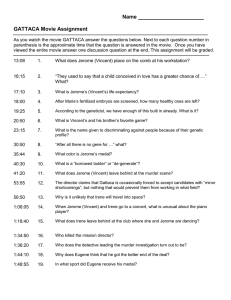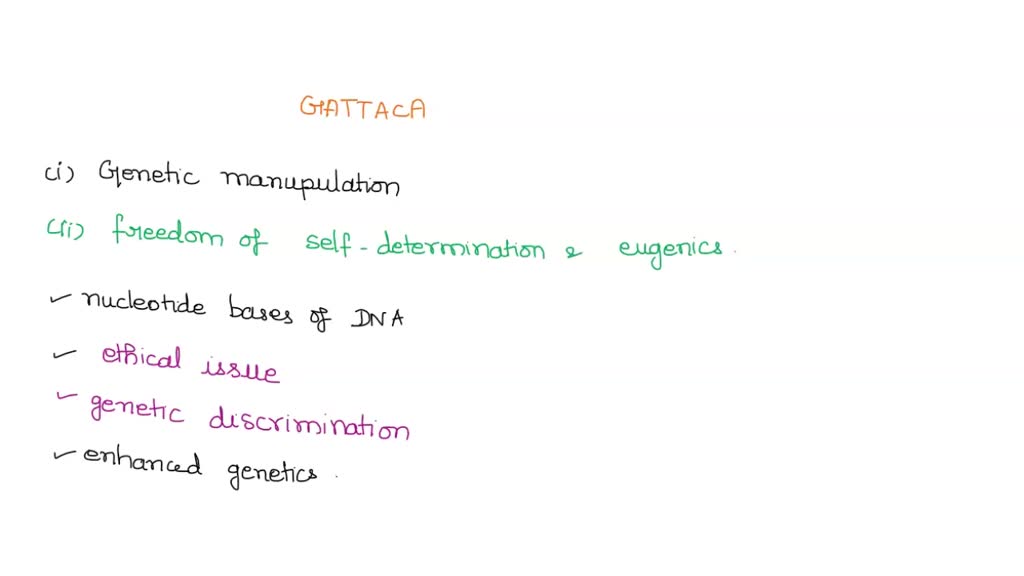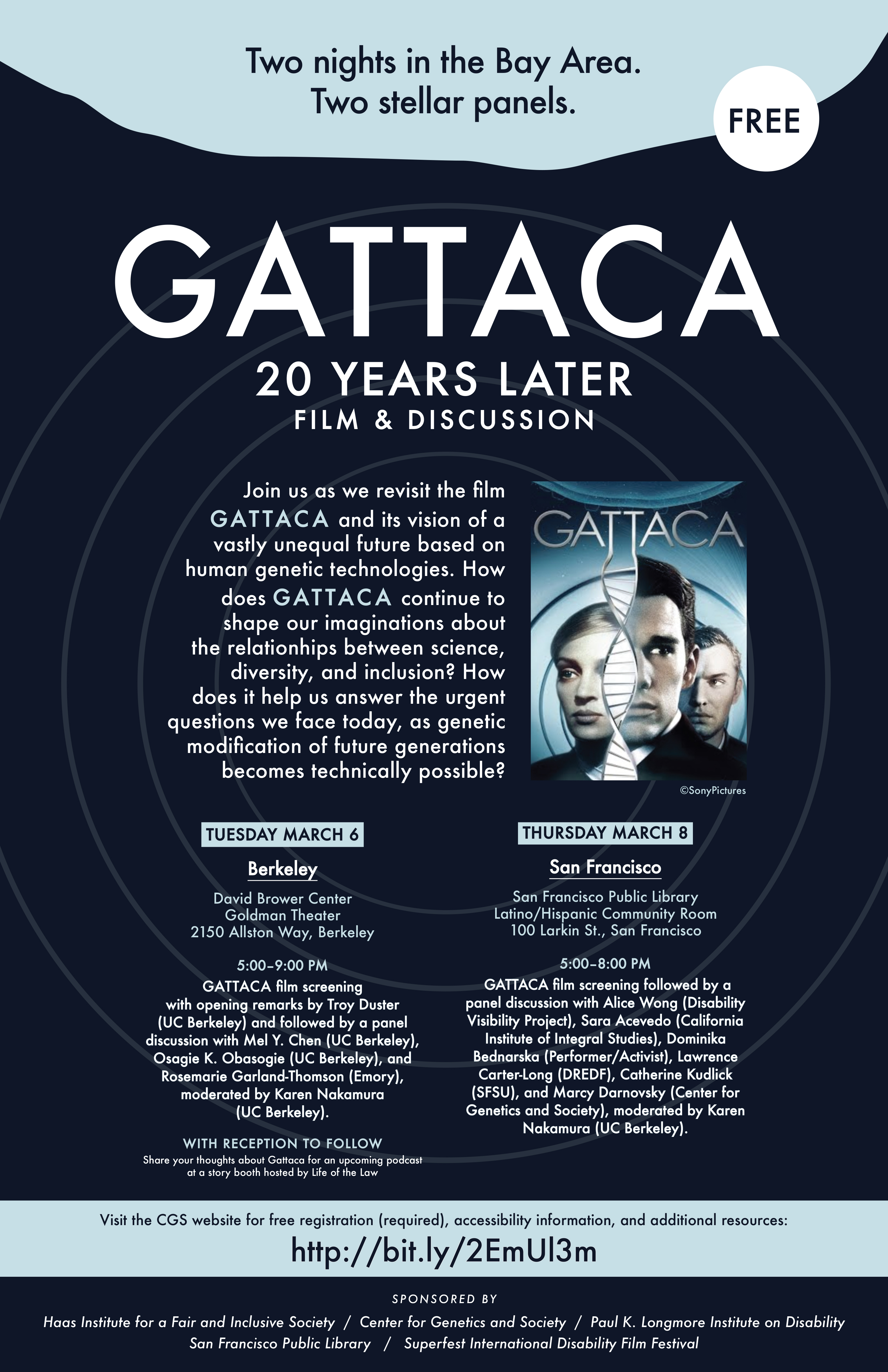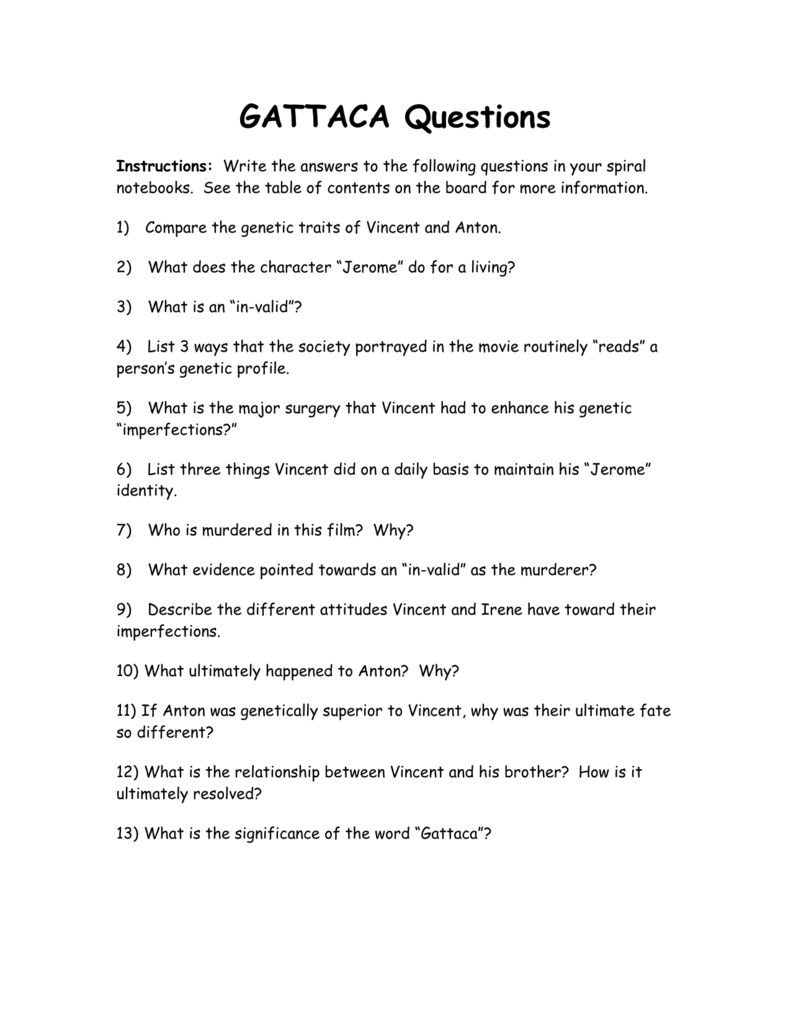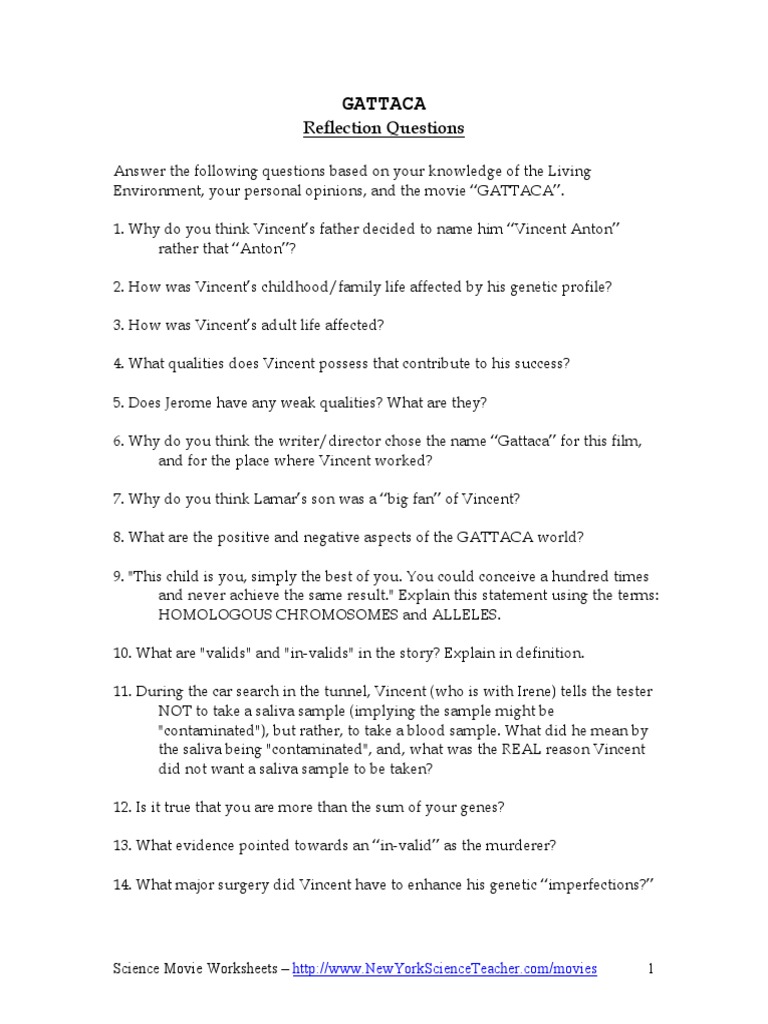Gattaca is a science fiction film that explores the potential consequences of advances in genetic engineering. The film raises a number of thought-provoking questions about the ethical and societal implications of such technology, and offers a cautionary tale about the dangers of discrimination and the importance of human individuality.
One of the central themes of Gattaca is the concept of "designer babies." In the film, parents are able to choose the traits of their children through genetic engineering, resulting in a society where individuals are divided into two classes: those who are "valid" and those who are "in-valid." The valid individuals are those who were genetically engineered to be perfect, while the in-valid individuals are those who were conceived naturally.
This raises the question of whether or not it is ethical to create designer babies. On one hand, genetic engineering could potentially eliminate certain inherited diseases and disabilities, improving the overall health and well-being of society. On the other hand, it could also lead to a society where individuals are valued based on their genetic makeup, leading to discrimination and prejudice against those who are not "perfect."
Another question that Gattaca raises is the idea of human identity and individuality. In the film, the valid individuals are seen as superior to the in-valid individuals, and are given more opportunities and privileges. However, the main character, Vincent, is an in-valid individual who is able to succeed and achieve his dreams despite his "imperfect" genetics. This suggests that one's worth and potential should not be determined by their genetics, but rather by their own personal qualities and abilities.
The film also explores the concept of determinism versus free will. The valid individuals are seen as being predetermined to be successful because of their perfect genetics, while the in-valid individuals are viewed as being limited by their natural flaws. Vincent's journey in the film shows that, despite the limitations placed on him due to his genetics, he is able to overcome them and achieve his goals through his own determination and will. This suggests that free will and personal agency are more important than genetics in determining an individual's success and potential.
Overall, Gattaca raises a number of important questions about the potential consequences of genetic engineering and the importance of individuality and free will. It serves as a cautionary tale about the dangers of discrimination and the need to value and respect all individuals, regardless of their genetic makeup.

